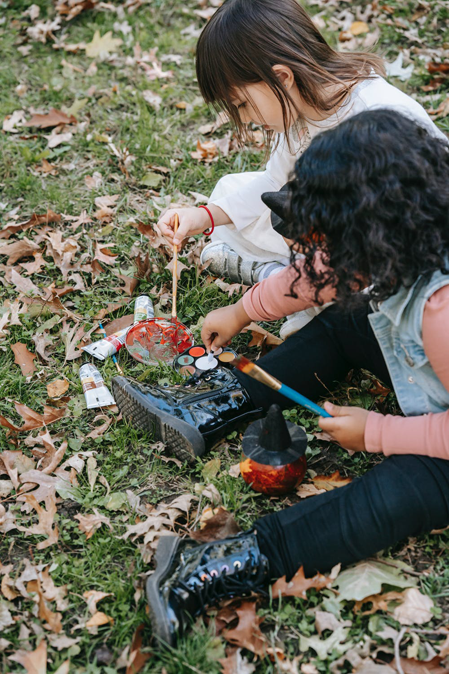How to Become an Art Teacher in the UK
If  your passion is art, you don't want to be distracted from it. The trouble is that it isn't so easy to make a living solely from "being an artist", unless you happen to be Tracey Emin or Damien Hirst. One solution many artists choose is to become an art teacher, either in a formal educational setting or offering private tutoring. But how do you go about this?
your passion is art, you don't want to be distracted from it. The trouble is that it isn't so easy to make a living solely from "being an artist", unless you happen to be Tracey Emin or Damien Hirst. One solution many artists choose is to become an art teacher, either in a formal educational setting or offering private tutoring. But how do you go about this?
Becoming an Art Teacher in School
There are several advantages to teaching art in school. For one thing, you'll be assured a regular salary, with a current entry level of£25,714-£32,157, depending where the post is (the high figure, of course, being for central London). For another, due to a national teacher shortage, positions aren't hard to come by.
However, to teach art in a school, it's not good enough just to know your stuff. You'll need a qualification, both in art and in teaching, as well as a DSB (Disclosure and Barring Service) check, unless you're teaching in further education. The minimum qualifications are generally:
- · Primary school — Bachelor Degree
- · Secondary school — Master's Degree
- · Further Education — Doctorate
Becoming a Private Art Tutor
If you don't want to go into the formal education system, or if you want to carry on teaching after retirement, becoming a private art tutor is an alternative. Here, the route is easier, on the face of it. There's no requirement for a formal qualification, or even a DSB check (although this is highly recommended).
However, this doesn't mean you'll be able to attract students if you can't demonstrate your skills. You'll need academic as well as practical knowledge in art, and you'll find it hard to establish yourself unless you can provide evidence of having reached an academic level in art of A-level or beyond.
Experience and Qualifications to Become an Art Tutor
Whether you want to prepare for a degree course or simply have a recognised qualification in art that will demonstrate your credentials to students, one option is to undertake a pre-degree course. The most prestigious of these include:
- · University of the Arts London, where you'll take a Foundation and Preparation Course at either Camberwell College of Arts or Central St Martins
- · Kings Education, where you'll take an Arts and Design Preparation Programme
- · University of Huddersfield, where you'll take their International Foundation Year in Creative Arts
Specialist or General Art Teacher?
Art is a very broad subject, and it's likely that your skills will be in one or two areas (painting, sculpture, design, photography etc.) If you're going to teach art at a primary or secondary school, you'll probably be expected to cover a wide range of art. If you're going into further education, however, or planning to be a private tutor, it might be better to specialise. As a private art tutor, it would be a good idea to become known as an expert in a particular field (e.g. watercolour). This doesn't mean your students will be limited, though, since many will want to learn various skills. If you want to know more about becoming an art teacher or tutor, register with TutorExtra for access to all our resources.


